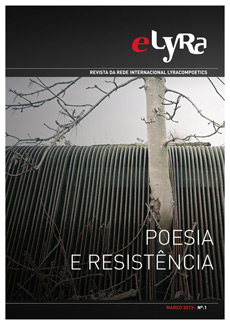Resumo
Partindo da ideia de que a literatura, porque intensifica pensamento e emoção, pode ser um veículo para a promoção da liberdade e a da solidariedade, defenderei que o conceito de com/paixão (“passar paixão”) e o conceito de pacto, motivos centrais em Novas Cartas Portuguesas (um livro escrito em 1972, a seis mãos, durante a ditadura fascista), são caminhos para o exercício social dos afectos. Esses dois motivos, pacto e com/paixão, são ainda hoje (e sobretudo hoje) formas de resistência a um mundo onde os princípios éticos se encontram subordinados a um modelo económico que ameaça o cerne da democracia – porque combatem a verdadeira solidão que subjaz ao poder sem liberdade.

